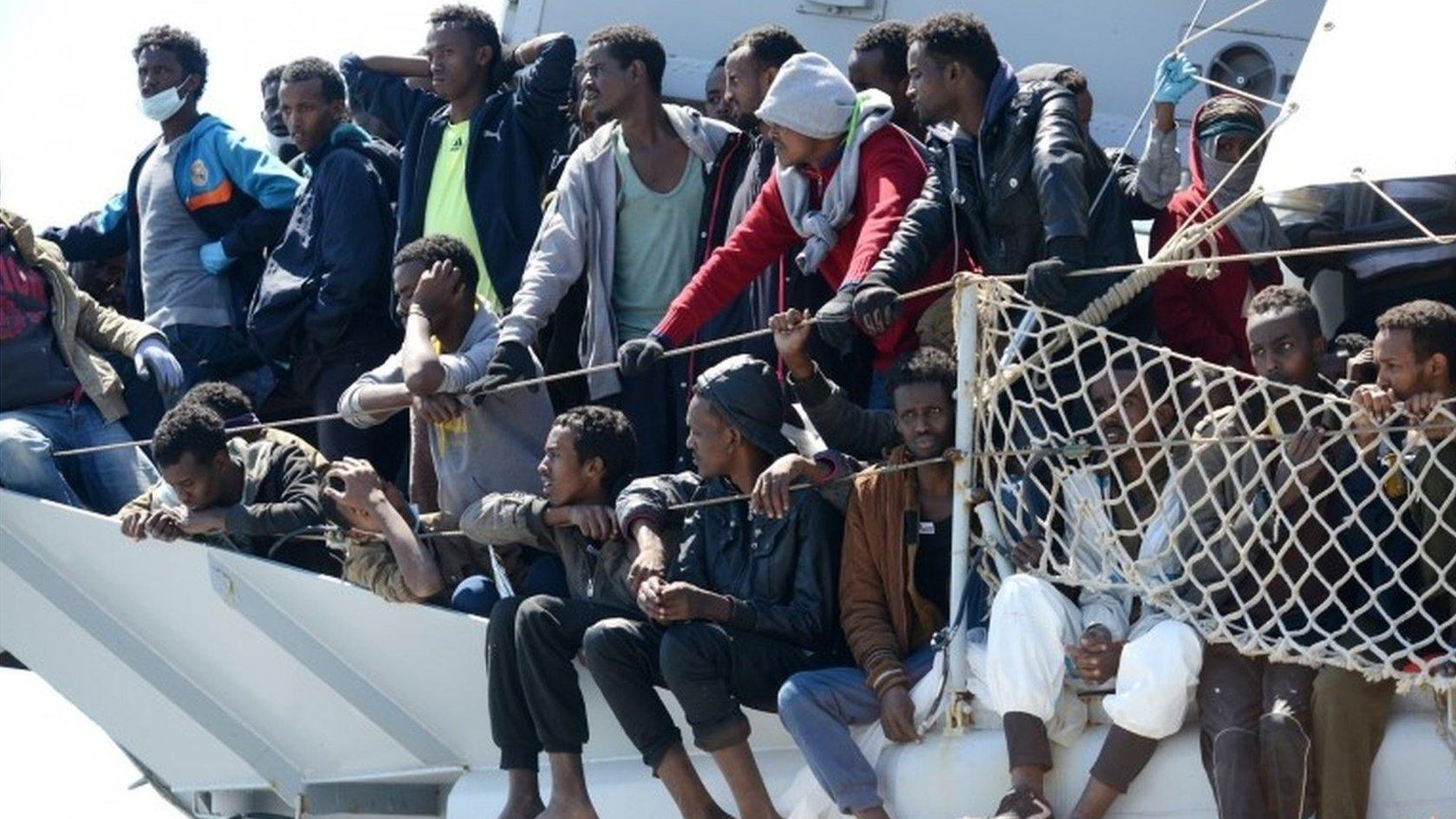Drowning migrants force the EU to act, but will it be enough?
- Published
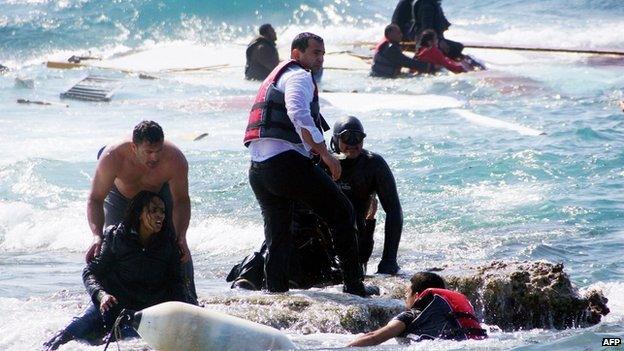
Over 35,000 have tried to cross and some 1,750 have died while attempting the journey.
This was a "something must be done" moment.
Europe's leaders could not accept that so many people have been dying, trying to reach their shores.
And even the United Nations had urged the EU to "go beyond its present minimalist approach."
So EU leaders have tripled funding for rescue operations in the Mediterranean.
Which takes it back to the level it was at a year ago but will it be enough?
Human rights groups are already criticising the summit for failing to expand the operational area of EU-led naval patrols, which could have taken them closer to the Libyan coast.
Unless the ships are in the right place, they argue, migrants will continue to drown.
Angela Merkel has said that if more is needed, more will be provided - money should not be an issue, she said.
That may well be put to the test in the coming weeks.
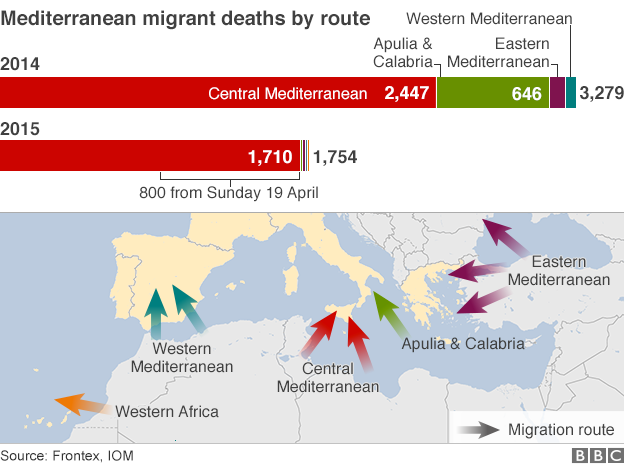
'Historic proportions'
Europe's long term problem is that it is struggling to cope with the scale of what is happening on its southern shores.
It is facing a mass movement of people which is of historic proportions.
And even if naval operations manage to rescue the vast majority, there are bitter disputes about how to deal with the tens of thousands who make it to safety.
Britain, for example, has said it will provide significant naval support, but it won't accept more asylum seekers.
Some people in southern Europe say that's not enough. The burden has to be more equitably shared.
But there is no common asylum and immigration policy within the EU. Different countries have very different priorities.
It will take years to get the balance right. This summit is only the start.
- Published18 May 2015
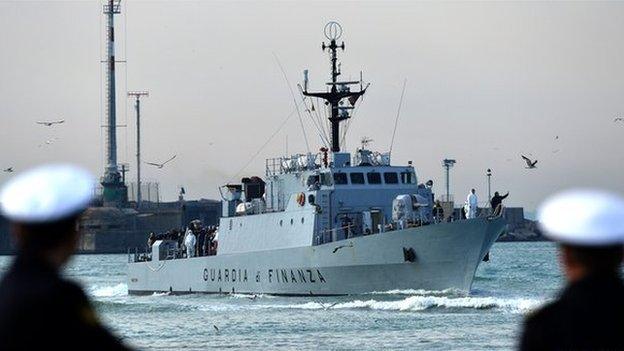
- Published22 April 2015
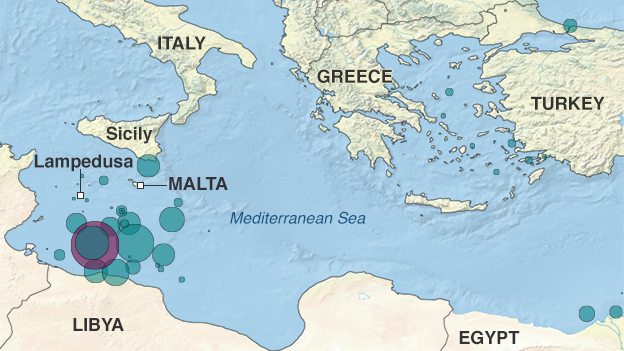
- Published23 April 2015
